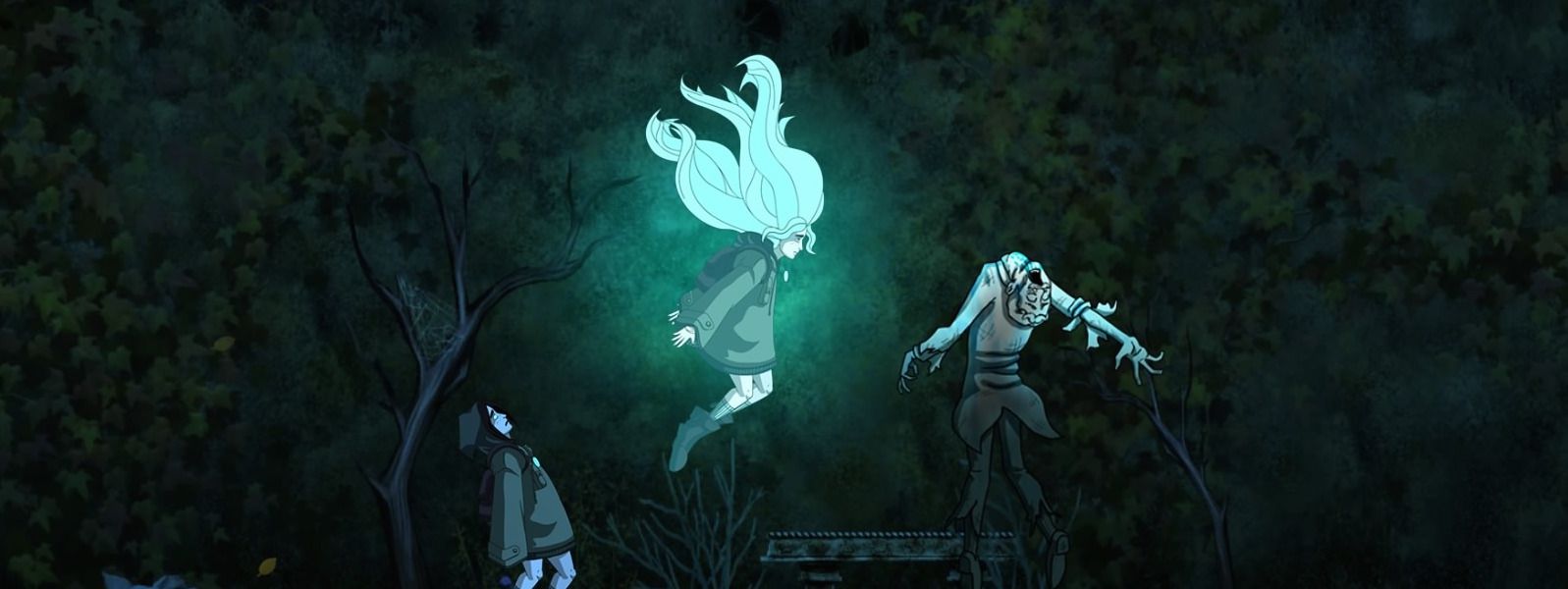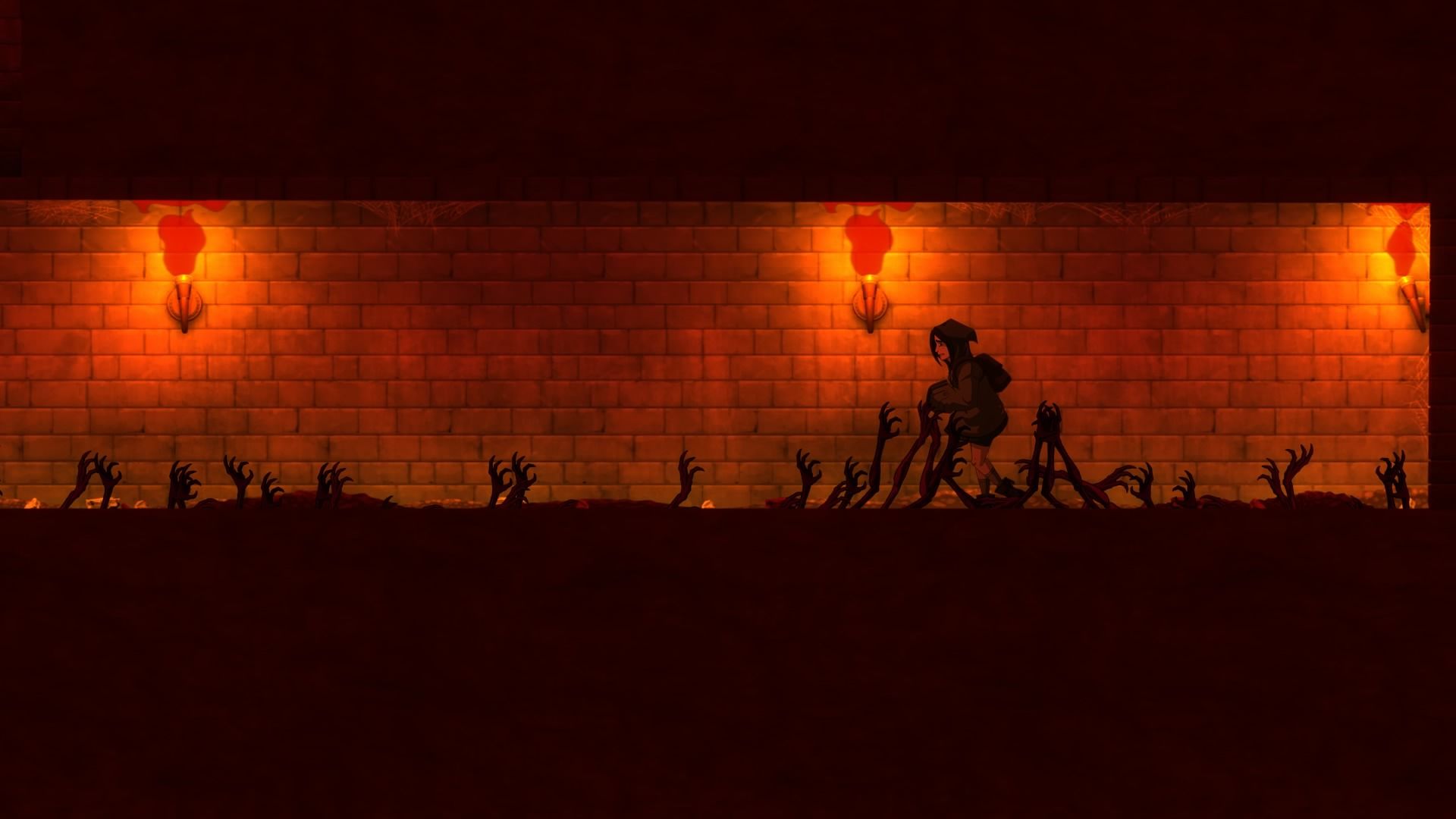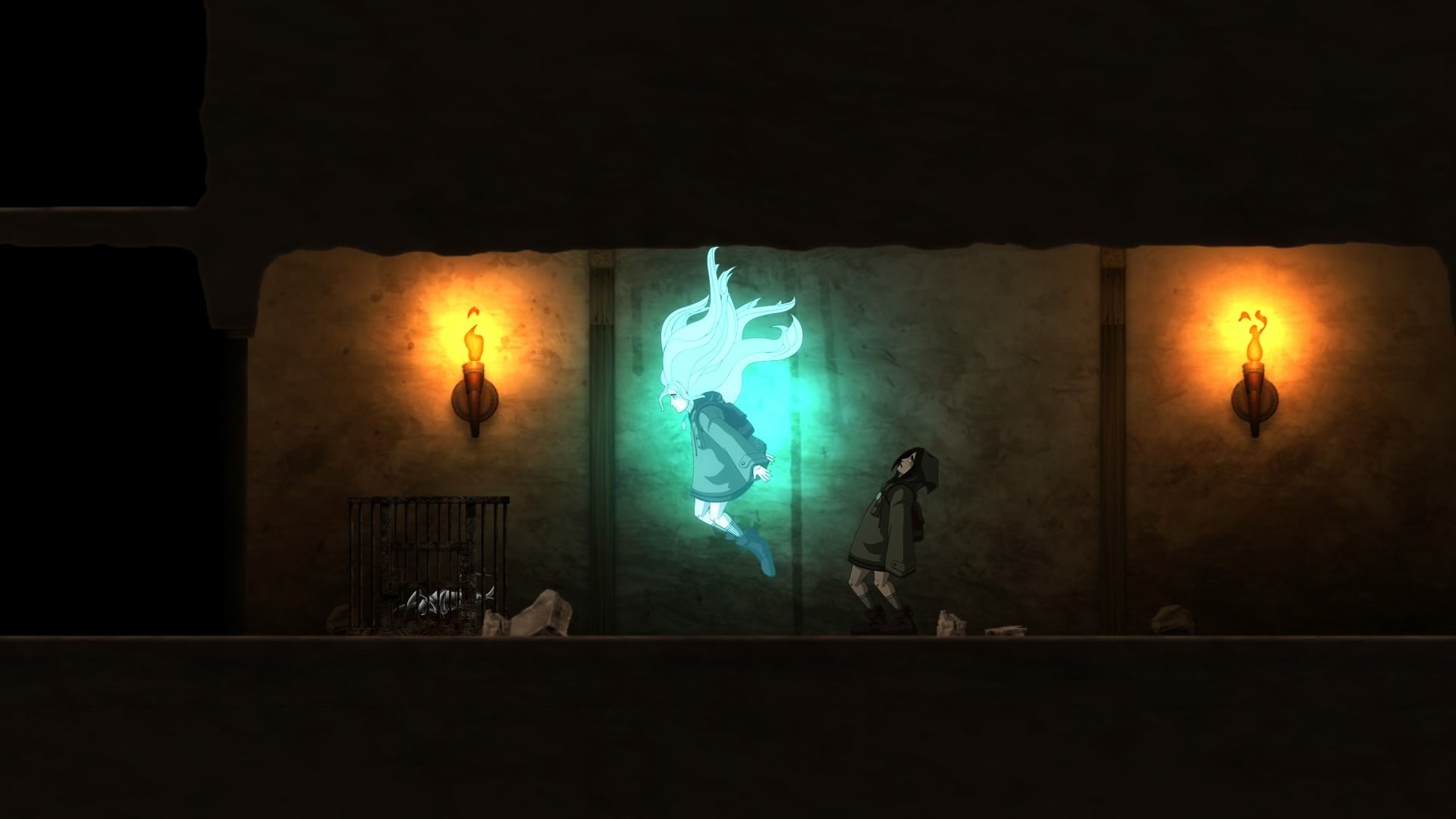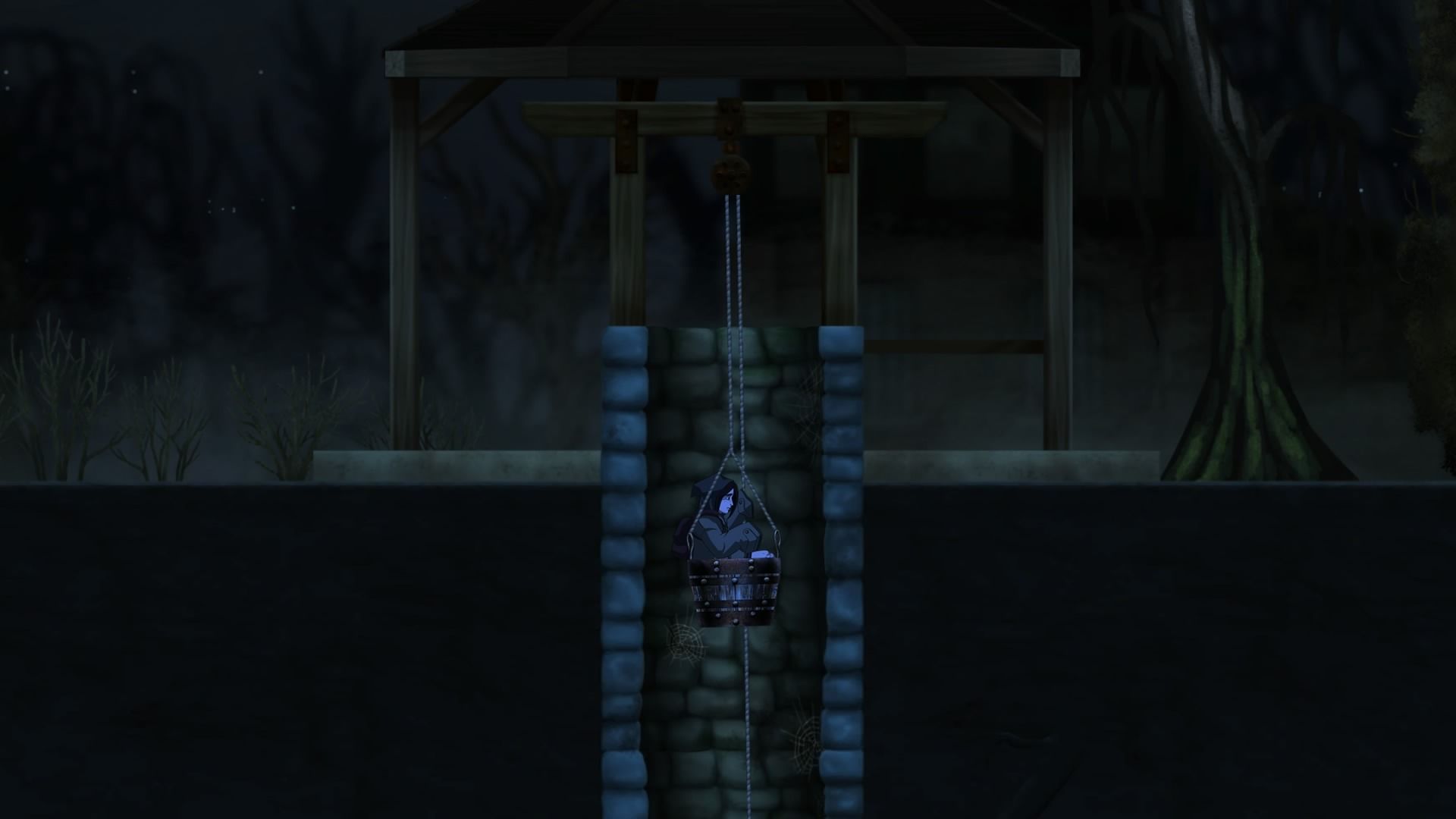Let this be a lesson for all up-and-coming game designers: immersion is not an inherent substitute for quality gameplay.
Whispering Willows, the gorgeous 2D adventure thriller from Night Light Interactive and Loot Interactive, attempts to suck players into its world without giving them any real reason to stay. It's an interesting situation, that much is certain, as this otherworldly three-hour adventure feels like a house with both the strongest foundation known to man and a dedicated absence of walls. Sure, there's a wonderful sense of grimness that results from turning out the lights, throwing on headphones and wandering around the haunted Willows Manor, but once the appeal of the environment wears off, players are left with a slow-paced slog through overly-simple puzzles and the occasional awkward stealth sequence. Whispering Willows is a decent enough distraction in the midst of a mid-year video game lull, but its attempts to be atmospheric are overshadowed by a dedicated lack of true entertainment value.
Whispering Willows tells the story of Elena, a young, hooded girl who realizes that her father, a groundskeeper at the haunted Willows Manor, has mysteriously disappeared. Shortly after setting off to find her dad, Elena discovers that the family heirloom she wears around her neck gives her the power to remove her spirit from her body and use it to possess certain items in the environment. In theory, this backstory should provide the framework for a bizarre tale of intrigue and mystery, but Whispering Willows winds up being exactly what it seems like it'll be. While there might be a few minor twists and turns along the way, almost entirely told through notes that Elena can pick up, there aren't enough mysteries to be solved here for the player to feel as though revelations are occurring. These notes do weave an interesting tale about the plight of the Native Americans and the horrors that certain wealthy white men committed back in the 1800s, and a game revolving entirely around these themes might carry more emotional weight (and, thus, be more immersive). Yes, the ending does shed some light on the actions that came decades before the events of the campaign itself, but the narrative itself doesn't necessarily contain a true hook.
Even though the act of removing your spirit from your body is inherently awesome, Whispering Willows doesn't necessarily use this mechanic for anything exciting. Whenever an item needs to be possessed, it's abundantly clear, these items feel brighter and stand out among the countless knick-knacks in Willows Manor. Small passageways will occasionally present themselves, requiring Elena's spirit to turn into a small flame in order to pass through them; the combination of these two mechanics is really all there is to the spirit system. There's something mystifying and badass about controlling the embodiment of one's soul, so to see this neat idea used in such a mundane fashion feels like a missed opportunity. Don't get me wrong, there are definitely some neat interactions between Elena's spirit and the various ghosts that lurk around Willows Manor, but Whispering Willows seems like it's focused on atmosphere to the point where its gameplay mechanics don't feel deep enough. An adventure game without a compelling narrative and rudimentary gameplay make for a somewhat boring experience, which is nothing short of a shame.
While puzzle-solving does play a prominent role in any descriptions of Whispering Willows you may find yourself reading on the Internet, its brain-teasers are light at best. It's always great to see adventure games stray away from the obtuse mechanics that plagued a great deal of the titles of yesteryear, every challenge in this case can simply be solved by examining everything in the area. The issue with this strategy is Elena's dreadful indoor walking pace, which, at times, feels implemented solely to increase the length of the campaign. Whenever you're wandering around the exterior of Willows Manor, you're able to sprint without any hesitation, which makes sections in the garden feel a bit more active and accessible. Sadly, the fact that Elena's sprint functionality is completely disabled whenever she enters a building's interior murders any sense of pace, dragging out the proceedings. One of the worst feelings in gaming is knowing the solution to a puzzle or problem only to find yourself fighting against the mechanics themselves in order to solve it, and Whispering Willows commits this sin constantly through its pace. You may know exactly where you have to go in order to continue Elena's quest for her father, but you'll be damned if you're not going to have to fight against constant loading screens and the slowest protagonist in modern adventure game history in order to get there.
Whispering Willows' saving grace is its downright gorgeous art-style, which absolutely pops on the original Vita's fantastic OLED screen. Granted, the long loading screens that pop up during the transition from one room or area to the next definitely take away from both the experience and the aesthetic, but the actual proceedings themselves are certainly easy on the eyes. Every inch of this hand-painted world does a fantastic job of conveying the age and history of Willows Manor, and while its walls don't contain anything half as interesting as what's painted upon them, the art team at Night Light Interactive definitely deserve a pat on the back. Everything from Elena's dramatic sprint animation to the beautiful full-screen cutscene images feels packed with detail and love. If you're looking for a title that shows off the potential of hand-painted visuals and nothing more, then Whispering Willows is definitely for you.
Closing Comments:
If you're looking for an intense thriller to play on the go, then Whispering Willows should only be your choice if you've completely the underrated Lone Survivor. Other than being a testament to the power of well-designed two-dimensional art, Night Light Interactive and Loot Interactive's adventure title is of little consequence at the end of the day. The combination of a horribly slow pace and a lack of any true puzzle difficulty makes the entire three-hour campaign feel like one massive fetch quest, only there isn't a grand payoff once said quest is complete. It's awesome to see a title grow from the quasi-death-sentence that is OUYA exclusivity into a Cross-Buy title on the PlayStation Store, but when one dives into the content itself, this horror story largely fails to immerse players in any meaningful way.




